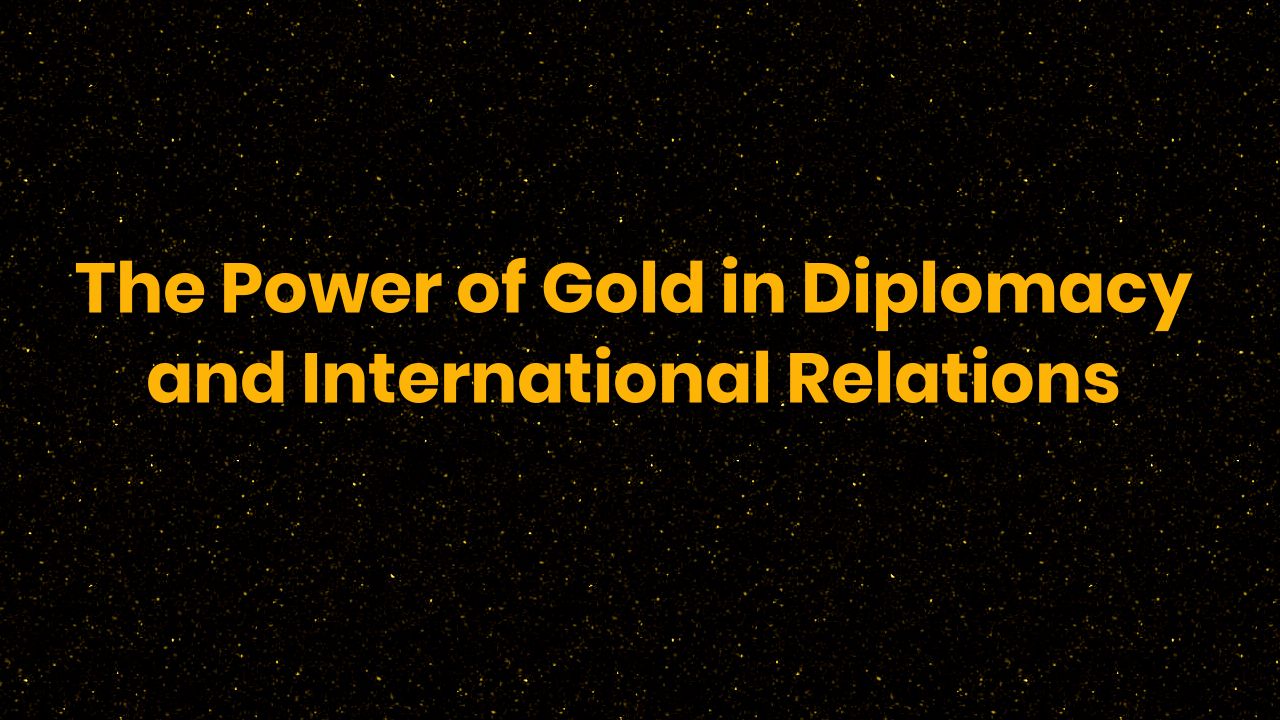
Table of Contents
Introduction
Gold has been used as a form of currency for centuries and has played a vital role in shaping international relations and diplomacy. Its value, scarcity, and durability make it a valuable commodity, and therefore, countries have often used it as a means of achieving their foreign policy objectives. In this blog, we will explore the various historical and modern ways in which gold has played a key role in diplomacy and international relations, its economic benefits, as well as the challenges and risks associated with its use.
The Historical Significance of Gold in Diplomacy
Gold has been at the center of international relations for centuries, with its use dating back to ancient civilizations like Egypt and Greece. Gold was seen as a symbol of power and wealth, and it played a significant role in diplomacy during the medieval period. Kings and rulers often gave gold as gifts to cement alliances and secure peace treaties. In the 16th and 17th centuries, European nations used gold to pay for military expenses, hire mercenaries, and conduct trade.
Using Gold to Build Alliances and Secure Peace
Countries have often used gold as a diplomatic tool to build alliances and secure peace. Governments have used gold as a form of payment to incentivize cooperation and achieve their foreign policy objectives. For example, in the 1800s, Great Britain used gold to pay subsidies to allies during the Napoleonic wars. The United States also used gold as a diplomatic tool in the early 20th century by loaning gold to European allies during World War I.
Economic Benefits of Gold in International Relations
Gold has numerous economic benefits, with its use being a driving force behind many international economic policies. Gold has been used to back up currencies and support monetary systems, which has created a stable trade environment. Gold is also used as a bullion reserve that can be liquidated in times of financial emergencies. Gold can act as a financial insurance policy, which can help prevent financial collapses.
Gold Reserves as a Means of Credibility and Security
Countries with large gold reserves have the credibility and security to support their currencies in times of financial uncertainty. The ability to secure gold reserves can act as a deterrent to financial predators and can provide security to a country’s economy. Gold reserves act as a way to maintain economic independence and limit the influence of other countries.
The Role of Gold in Modern Diplomacy and International Relations
Although the role of gold in diplomacy has evolved, it still plays a significant role in modern international relations. Many countries still hold large gold reserves, and gold is still bought and sold by central banks as a way to ensure economic stability. Gold is also used as a store of value for trade and investment purposes. In addition, gold is often used in jewelry, which can serve as a form of cultural exchange.
Challenges and Risks of Using Gold in Diplomacy
The use of gold in diplomacy and international relations is not without its challenges and risks. The price of gold can fluctuate sharply, which can lead to financial instability. Gold reserves can also be stolen, lost, or seized as a result of war or political conflict. Gold transactions can also be difficult to regulate, making them susceptible to money laundering, smuggling, and other illegal activities.
The Enduring Importance of Gold in International Affairs
Gold’s enduring value and importance throughout history make it a valuable commodity in international affairs. The use of gold as a diplomatic tool has helped countries build alliances, secure peace, and maintain economic stability. While there are challenges and risks associated with the use of gold in diplomacy, its ability to act as a store of value and a symbol of wealth and power ensures that it will remain a key player in international relations for years to come.
Summary and Conclusion
In conclusion, we have explored the historical significance of gold in diplomacy, with its use dating back to ancient civilizations, and its continued importance in modern international relations. We have also discussed the economic benefits of gold, including its role in supporting monetary systems and acting as a financial insurance policy. Finally, we have highlighted the challenges and risks of using gold in diplomacy, such as fluctuating prices, theft, and illegal activities. Overall, while the use of gold in diplomacy poses some risks, its enduring value and importance make it a valuable commodity in international affairs.





